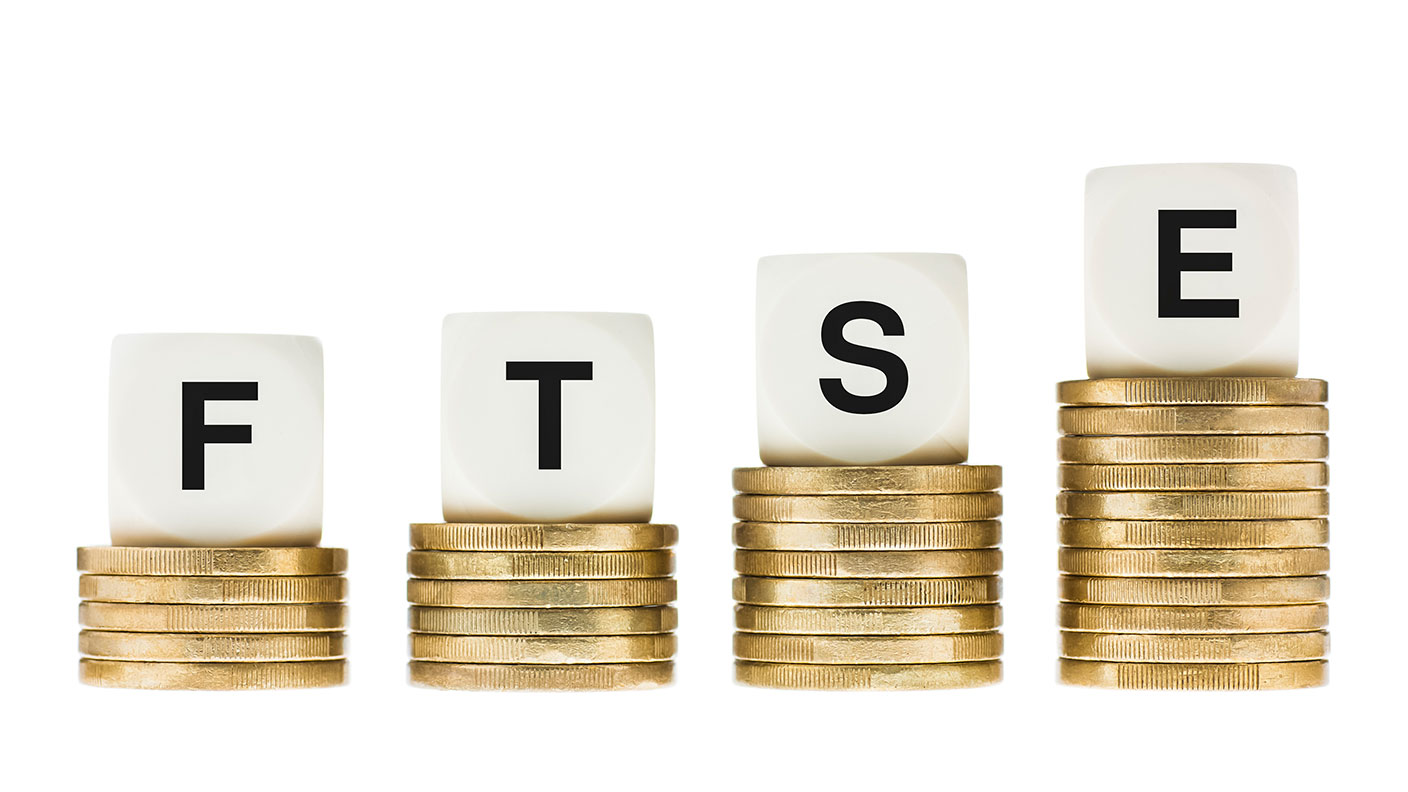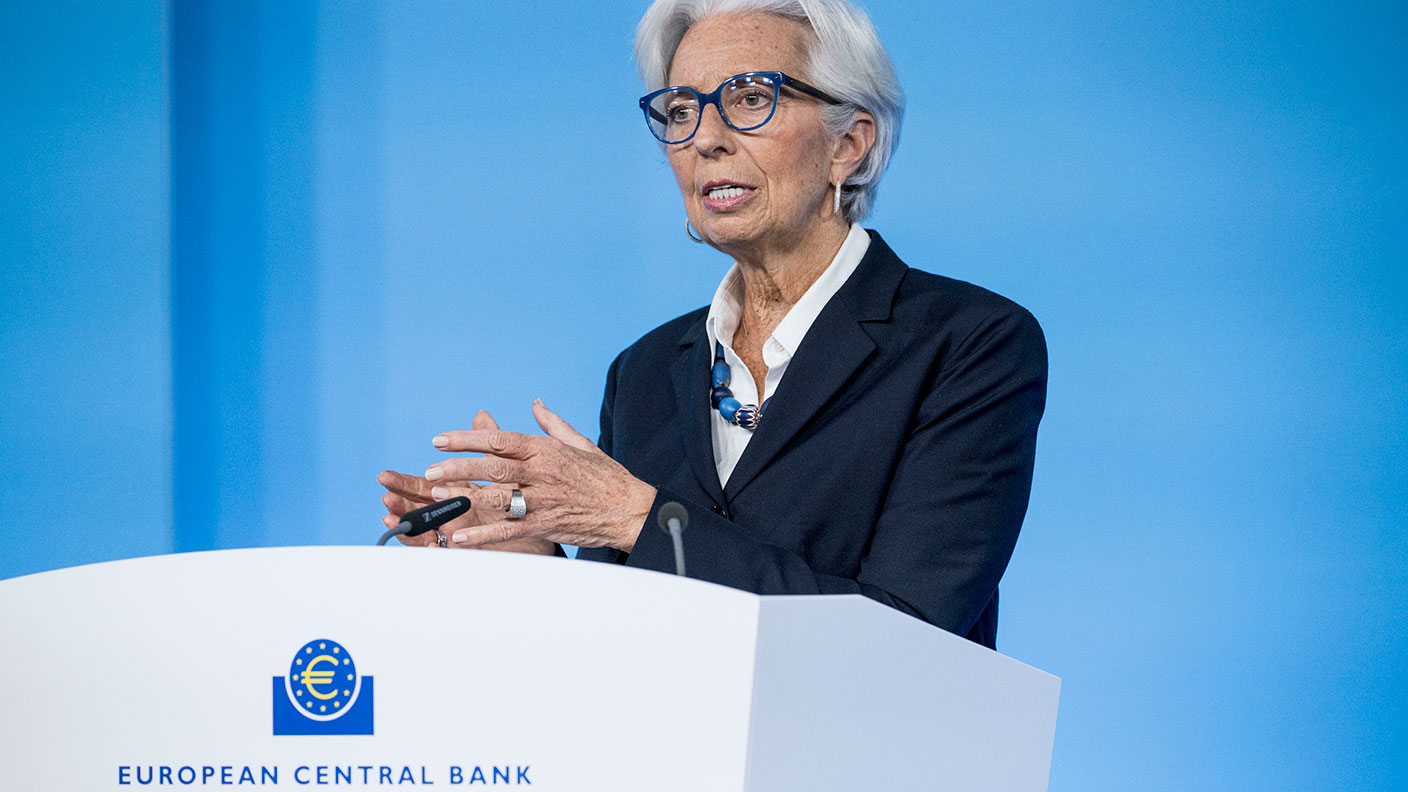Stash your cash in bond ETFs
A savings account isn’t always practical. Here’s what to do with the cash in your portfolio.

Get the latest financial news, insights and expert analysis from our award-winning MoneyWeek team, to help you understand what really matters when it comes to your finances.
You are now subscribed
Your newsletter sign-up was successful
Want to add more newsletters?

Twice daily
MoneyWeek
Get the latest financial news, insights and expert analysis from our award-winning MoneyWeek team, to help you understand what really matters when it comes to your finances.

Four times a week
Look After My Bills
Sign up to our free money-saving newsletter, filled with the latest news and expert advice to help you find the best tips and deals for managing your bills. Start saving today!

More and more investors are using exchange-traded funds (ETFs) to get low-cost access to various themes and markets. However, I suspect many more would like to use them but are confused by the wide range of choice out there.
It's one thing to track the FTSE 100 or the S&P 500, but once we head away from well-known benchmarks like these, most of us don't really understand the pros and cons of specific indices. So every month or so I plan to outline a shortlist of solid ETFs to choose from, all focused on one particular asset class or theme. I'll concentrate on the biggest, most liquid, and best-value ETFs in each case.
Practically risk-free options
This is where bond funds investing in highly rated, mostly sovereign, investment-grade bonds usually with a short maturity profile come in. By keeping the maturity of the bonds to a few years maximum, you can minimise interest-rate risk (longer maturity corporate bonds might pay out a juicier yield, but total returns are much more vulnerable if rates rise sharply). There is lots of competition in ETFs in this sector.
MoneyWeek
Subscribe to MoneyWeek today and get your first six magazine issues absolutely FREE

Sign up to Money Morning
Don't miss the latest investment and personal finances news, market analysis, plus money-saving tips with our free twice-daily newsletter
Don't miss the latest investment and personal finances news, market analysis, plus money-saving tips with our free twice-daily newsletter
For instance, Invesco recently announced it is launching the lowest-cost US Treasury Bond ETFs in Europe. Investors can choose to focus on US government bonds with maturities of between one and threeyears; three and seven years; or seven and ten years. Alternatively, they can get broad exposure across the full maturity spectrum.
The four funds will be available to trade in US dollars or pounds on the London Stock Exchange and charge just 0.06% a year. A sterling-hedged version of the Invesco US Treasury Bond 7-10 Year ETF (LSE: TRXS), which would help to protect against exchange-rate fluctuations, is also available at an ongoing charge of 0.1% a year.
US government bonds may well represent great value, with bountiful yields compared with other developed-world government debt. The yieldon the benchmark ten-yearUS Treasury bond index has more than doubled from its lows in mid-2016.
Yet I suspect this yield probably won't head much higher from here, and that in fact after a year ortwo yields might start to fall again as US growth slows and the US central bank (the Federal Reserve) starts to cut rates again.The big challenge fora sterling investor is the exchange rate, which is why the hedged, longer-dated ETF offered by Invesco might be worth investigating.
More established ETFs
| Name of ETF | TER | Returns in 2018 |
| iShares Germany Government Bond UCITS ETF GBP Hedged (LSE: DEGH) | 0.22% | N/A |
| Vanguard UK Gilt UCITS ETF (LSE: VGOV) | 0.12% | 0.40% |
| iShares GBP Index-Linked Gilts UCITS ETF (LSE: INXG) | 0.25% | -0.83% |
| iShares GBP Ultrashort Bond UCITS ETF (LSE: ERNS) | 0.09% | 0.67% |
| PIMCO US Dollar Short Maturity Source UCITS ETF (LSE: MINT) | 0.35% | 7.93% |
The first ETF, the German bond fund, is a slightly left-field candidate, but if there is a financial panic, I'd expect European bond investors to opt for the safest haven close by which will be German government bonds (or bunds).
Next comes an ETF from Vanguard, which tracks a broad selection of UK gilts and has an average yield to maturity of just 1.5%, but a total cost of ownership of just 0.12%. Gilts are a relatively safe way to stash away some cash earmarked for investing. However, longer-maturity gilts might be vulnerable in a sterling sell off, so it's worth noting that the Vanguard fund holds more than 50% of its portfolio in gilts with a maturity of more than ten years.
Index-linked gilts focus on inflation protection. This is where the third ETF on the list an iShares fund comes in. It is one of the biggest,most liquid funds in thissector, although the yield isnext to nothing.
The fourth ETF is the iShares Ultra Short Term ETF, which is very low cost and sterling denominated. I really like this fund because it is diversified between corporate and government issuers,but more than 85% of its holdings are in bonds due to mature inside two years.The average yield to maturityis 1.42%.
For those worried about the possibility of Jeremy Corbyn being elected which could prompt massive selling of gilts my alternative favourite, and the last fund on the list, is PIMCO's US Dollar Short Maturity fund, which has a higher TER of 0.35%.It's an actively managed ETF that invests primarily inshort-duration, dollar-denominated bonds across countries and issuers (government and corporate).This is a big beast of a fund, with nearly $2.4 bn under management. Around 69% of that is invested in investment-grade corporate bonds, and all but 6% is in bonds with a maturity of less than a year. The estimated yield to maturity is 3.35%, but remember that you are vulnerable to fluctuations in the sterling-dollar exchange rate.
Get the latest financial news, insights and expert analysis from our award-winning MoneyWeek team, to help you understand what really matters when it comes to your finances.

David Stevenson has been writing the Financial Times Adventurous Investor column for nearly 15 years and is also a regular columnist for Citywire.
He writes his own widely read Adventurous Investor SubStack newsletter at davidstevenson.substack.com
David has also had a successful career as a media entrepreneur setting up the big European fintech news and event outfit www.altfi.com as well as www.etfstream.com in the asset management space.
Before that, he was a founding partner in the Rocket Science Group, a successful corporate comms business.
David has also written a number of books on investing, funds, ETFs, and stock picking and is currently a non-executive director on a number of stockmarket-listed funds including Gresham House Energy Storage and the Aurora Investment Trust.
In what remains of his spare time he is a presiding justice on the Southampton magistrates bench.
-
 Should you buy an active ETF?
Should you buy an active ETF?ETFs are often mischaracterised as passive products, but they can be a convenient way to add active management to your portfolio
-
 Power up your pension before 5 April – easy ways to save before the tax year end
Power up your pension before 5 April – easy ways to save before the tax year endWith the end of the tax year looming, pension savers currently have a window to review and maximise what’s going into their retirement funds – we look at how
-
 What the return of the bond vigilantes means for investors
What the return of the bond vigilantes means for investorsAnalysis The US Federal Reserve is dancing to the tune of the bond vigilantes, says Max King. Here’s what that means for stockmarket investors, the economy, and you.
-
 Low-cost index funds for simple investing
Low-cost index funds for simple investingTips Index funds are an easy, low-cost way for investors to invest in a sector or asset class. Here’s a selection of the cheapest passive tracker funds on the market right now
-
 Britain’s resilient blue chips – a refuge in the inflationary storm
Britain’s resilient blue chips – a refuge in the inflationary stormNews The UK's blue-chip FTSE 100 index has been the best-performing major stockmarket index so far this year.
-
 Why you need to invest at least some of your money outside the UK
Why you need to invest at least some of your money outside the UKAdvice Most investors tend to have a bias to their home market. But that’s a mistake, says Rupert Hargreaves. Investing in international stocks can help diversify your portfolio and protect your wealth from unnecessary risks.
-
 The FTSE 100 is doing moderately well – can this continue?
The FTSE 100 is doing moderately well – can this continue?Analysis The FTSE 100 performed well and better than expected in the first quarter of 2022. John Stepek looks at what has changed.
-
 Nature is healing – government bond yields are turning positive again
Nature is healing – government bond yields are turning positive againAnalysis Negative bond yields are finally coming to an end as central banks change tack. But can the markets cope? John Stepek looks at what might come next.
-
Index provider
Glossary Stockmarket indices such as the FTSE 100 play a huge role in investment. But where do they come from and who maintains them?
-
 The spectre of stagflation shakes stockmarkets
The spectre of stagflation shakes stockmarketsNews Stockmarkets are getting increasingly jumpy about stagflation, the combination of economic stagnation and high inflation, with America’s S&P 500 down by 4.8% in September and the FTSE 100 by 1%.